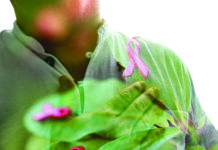The number of patients suffering from respiratory problems linked to air pollution is on the rise. However, Dr Parmesh Chandydyal, Resident Medical Officer at Clinique Bon Pasteur, is reassuring: “Daily vigilance, adapted habits and rigorous medical management can limit the effects.” ZA
Exposure to fine particulate matter (PM2.5), nitrogen dioxide (NO₂), ozone or volatile organic compounds can cause or aggravate various respiratory pathologies. “These pollutants penetrate deep into the respiratory tract, causing chronic inflammation, bronchial hypersensitivity and reduced lung function.”
They also make allergens more aggressive. The result: symptoms intensify – sneezing , persistent coughing, wheezing or nasal congestion. For children, the elderly and the chronically ill, this can be a serious concern. Allergic rhinitis and asthma are particularly sensitive to such exposure.
But there’s no need to panic. “Our role is to help you better understand your environment and preserve your respiratory health,” stresses the doctor. It’s crucial to be alert to warning signs, and to seek medical advice as soon as they appear.
Diagnosis is based on precise examinations, such as allergological tests or respiratory function tests. Treatment is then personalized, sometimes including immunotherapy, to reduce symptoms over the long term.
Finally, prevention remains essential: avoid outdoor exertion during pollution peaks, air your home properly, use non-irritating household products and get vaccinated against respiratory infections, for the most vulnerable.








